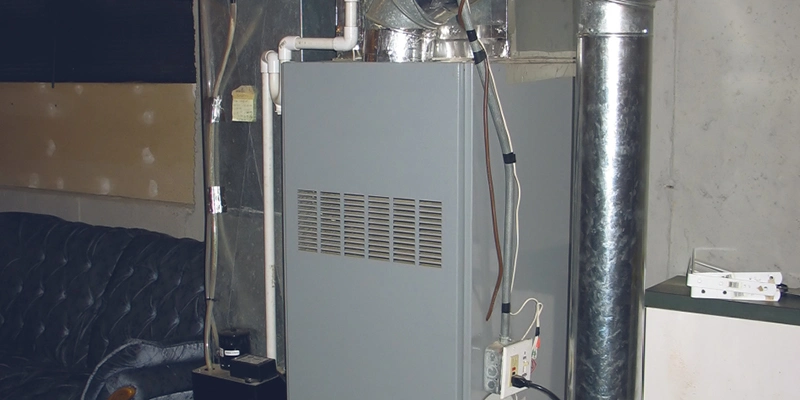
Last updated: 9/16/2023
Is your old furnace nearing the end of its lifespan? If it’s time to replace your heating system, you may have a choice between gas and electric heat. Both of these heating options have some pros and cons property owners should consider before making a final selection.
GAS HEAT
Pros
- Less expensive to operate: Almost everywhere in the country, natural gas is significantly cheaper than electricity. If you live in a cold climate and run your heater a lot during the winter, a gas furnace can save you money over the long run.
- Faster heating: Gas heat tends to heat up the home faster than electric heat because the gas furnace produces maximum heat as soon as the burners start running.
Cons
- More expensive upfront: Gas furnaces cost more to purchase than electric ones and the installation is more complicated due to venting requirements. This means a gas furnace requires a larger upfront investment than an electric one.
- Shorter lifespan: You can expect a gas furnace to last 10 to 20 years, which is about half as long as an electric unit.
- More maintenance requirements: Because they run on a combustible fuel, gas furnaces need to be maintained yearly to ensure safe, efficient operation. Skipping regular maintenance could put your family at risk of exposure to carbon monoxide gas.
ELECTRIC HEAT
Pros
- Lower upfront investment: The ability to install a furnace for less definitely makes electric heat appealing to some homeowners. However, the savings you enjoy upfront are only worth it if you live in a warm climate and don’t run your furnace very often.
- Minimal disruption during installation: Electric furnaces don’t need to vent to the exterior, so they can be installed just about anywhere. The installation process itself is quick and painless, causing very little disruption to your home or daily routine.
- Easy maintenance: While it’s still important to have an electric furnace checked annually, there’s less fear that a malfunction could be detrimental to your family’s health.
Cons
- Higher lifetime cost: The biggest flaw with electric furnaces is that, while some boast near 100-percent efficiency, the higher cost of electricity makes electric heat more expensive than gas heat. The lifetime cost of an electric furnace is higher than a gas furnace operating under the same conditions, even when taking into account the longer lifespan of an electric furnace.
- Slower heating: An electric furnace must spend time powering up the heating element before it can start to warm your home. This means you have to wait longer for the effects of turning up the thermostat to kick in.
Gas vs Electric Heating
Gas heat is the way to go if you live in a colder climate and rely on your furnace for indoor comfort several months out of the year. Proper maintenance of your heating unit ensures your family’s safety and helps the heater last years longer.
Electric heat is the best option if you live in a warmer climate or an area where gas heat isn’t an option. Low maintenance needs and a long lifespan mean you don’t have to give much thought to your heater. For the best energy efficiency when electricity is the only option, consider an electric heat pump instead, which can double as an air conditioner to cool your home in the summer.
If you need help repairing, maintaining or picking out a new gas or electric heater for your home, please check out the heating services available from Aire Serv®. For more information, or to schedule a visit, please contact us today.

